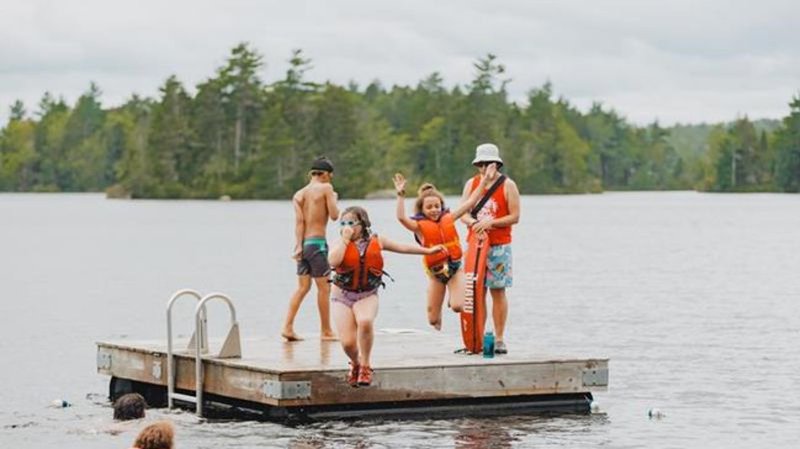
Expanding camp in N.S. includes program for kids in grief, with ample time for fun
HALIFAX — When Meaghan Belanger’s mother informed her about a Nova Scotia camp for children in grief, the teenager’s initial reaction was unenthusiastic as she feared it would be too teary and dull.
Instead, she found herself immersed in unabashed fun — ranging from a delicious dinner to meeting new friends — during her first day at Brigadoon Village in the summer of 2019.
“Five minutes after my Mom left I realized, ‘This is going to be great,'” the teen said in an interview Saturday. She was 14 when she attended the camp in Aylesford, N.S., and is now 17.
Her mother, Janette Belanger, said she initially struggled to find her children Meaghan, Sean and Sarah help with bereavement after her husband, Gilles Belanger, died from a rare form of cancer in the fall of 2018.


